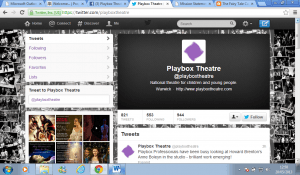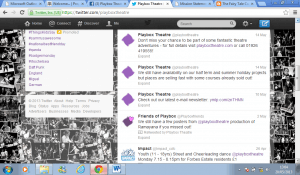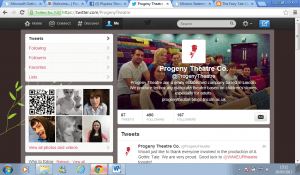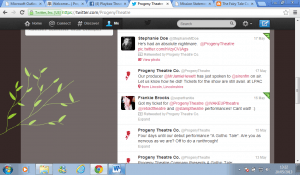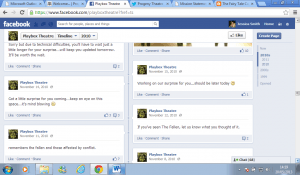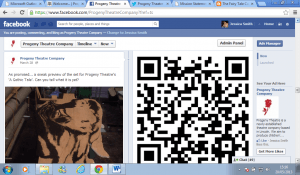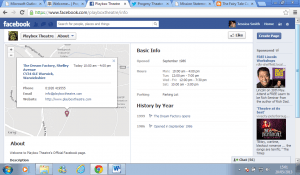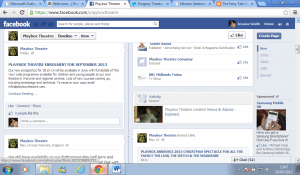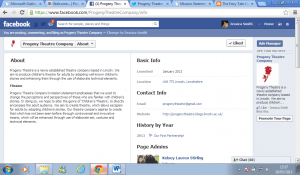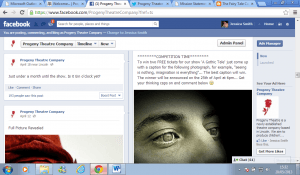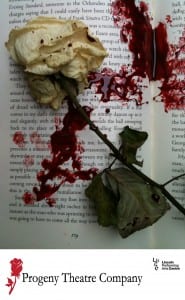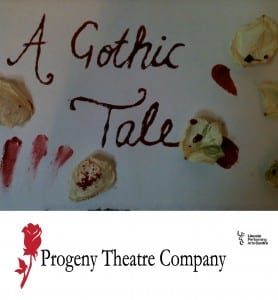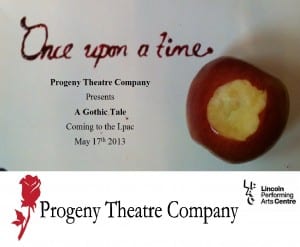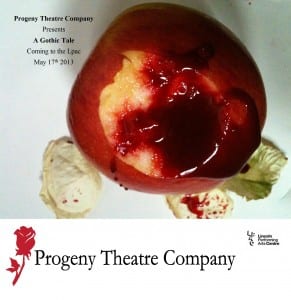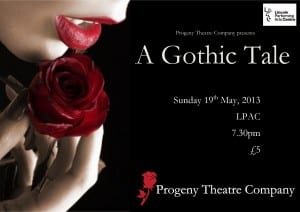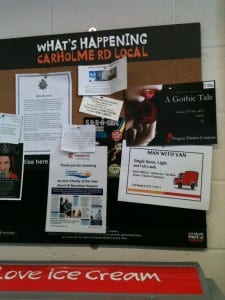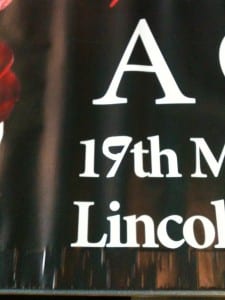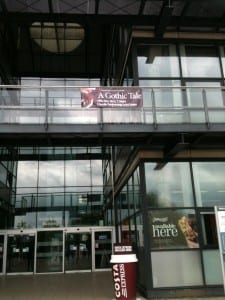Marketing Plan Reviewed
Unfortunately not all of our marketing ideas and plans were carried out. If we were a professional theatre company then I think that they would have been. However, we are not and we all have jobs, other modules, essays and other things which we have to dedicate our time to. If this was a full time job then we would have had enough time to complete each stage of our plan. Although we did manage to carry out most of our marketing plan, I feel that we simply gave ourselves too many activities to be able to put them all into action. Our social network sites were up and running by January and we communicated with our audience throughout the whole process. We did this in a number of different ways, including providing ‘teaser’ pictures, generating polls for them to complete, holding competitions and revealing general information about the company, the show and the process of creating it. We also created two promotional videos by the date that we set ourselves which were released on our social media sites. We accomplished our idea of ‘tagging’ in the University library which generated a reaction from our audience. Before doing this I made sure that I emailed the library to get permission as a precautionary measure as we did not want to receive a bad reputation as a new theatre company. We also created the posters in March; however, they were not released on time as there was a delay in the printing of them. The Company that we used made a mistake so needed to reprint them. Although this meant that we had to wait longer it also meant that we were able to change the date to the new date of the 19th of May, which occurred due to a misunderstanding. We also released different posters to our initial creations. Although the first posters that we designed displayed exactly what we wanted, they did not look very professional due to the lack of equipment that we had. Instead we decided to use a royalty free image of a woman holding a rose as this image looked more professional, due to the quality, and so had a better effect on our company image. One thing that we did not have time to do was the street performances. This was due to the fact that we were focusing on other aspects such as the posters and the tagging and then once all of these were completed we had run out of time. Due to lack of time, and people’s individual schedules, it was hard to find time where we were all available to implement street performances. If I were to do this module again I would have started with the street performances as everybody in our company seemed to have more free time at the beginning, and this was the only aspect that we needed everyone to participate in. However, overall I feel that we did carry out a sufficient amount of marketing which can be seen in the high ticket sales. We discovered that the average number of audience members to attend a student performance is fifty, yet we had over 100 audience members.
Word count: 531
Marketing plan written by Jessica Smith and Kelsey Stirling:
Progeny Theatre Company’s marketing plan
